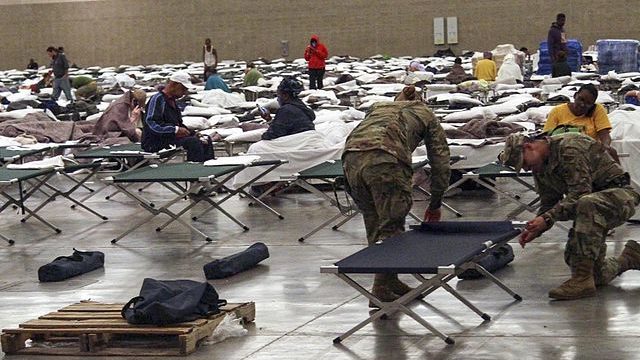Abstracts: Sex-Testing at the Olympics, Dealing with Disasters, Voting, and More
• South African Olympic runner, Caster Semenya, has been at the center of controversy over whether or not female athletes should be tested to confirm that they are women. Caster may have hyperandrogenism, which allows her to produce an atypical amount of testosterone. While some say that athletes like Caster can have an unfair advantage, sexual testing in sport has historically led to sexual harassment and is often based on arbitrary, unscientific hormone limits. (FiveThirtyEight)

Disasters, like the flooding in Louisiana, often require doctors and aid workers to make tough choices about who to treat, and when. Now, some doctors are asking the public how these choices should be made.
• When a disaster occurs — like the flooding in Louisiana — hospitals often need to make hard decisions about who to treat first and who to give more attention to. For the last several years a group of doctors have led public discussions around these issues in Maryland. They ask the public to talk about these hard decisions and get public feedback as to how medical professionals should proceed in the future. (New York Times)
• In 2012, only about 53.6 percent of those who were eligible to vote in the presidential election, did. Behavioral science might be able to help us understand why so few people vote, and how to encourage more people to go to the polls this year. (Scientific American)
• The majority of drug addicts may recover on their own, without any formal assistance. This phenomenon — known as ‘aging out’ — though common, is not universal and it is difficult to understand what separates those who can walk away from addiction from those who can’t. (Aeon)
• The U.S. Air Force said that it will stop using firefighting foam that contains toxic chemicals linked to cancer, and which have contaminated several water supplies around Pennsylvania. (Philidelphia Inquirer)
• After passage of a California law that requires almost all students to have proof of immunizations, schools in Oakland are struggling to confirm everyone’s records. As a result, several hundred students are expected to miss the first day of classes. (The Mercury News)
• Many nations do not require automakers to create a certain number of electric cars, but according to a new study, they may not need to. In order to meet fuel economy requirements, automakers may need to make a lot more electric vehicles. The study estimates that by 2020, 11 percent of all new cars sold in the U.S. will need to be electric. (Christian Science Monitor)
• Although Zika was thought to primarily affect only unborn children, new research shows that the virus can kill brain cells in adult mice. If this effect also takes place in adult humans, the virus may turn out to be an even bigger danger to public safety than previously thought. (Science News)
• Researchers are trying to turn milk protein, casein, into a kind of biodegradable packaging for food. The wrapping would not only be edible and more environmentally friendly, but may even do a better job at keeping food from spoiling than the current plastic packaging. (Bloomberg)
• And finally, in California environmentalists are divided on the recent closure of a nuclear power plant. While opponents to nuclear Power, like the Sierra Club, say that the nuclear waste cannot be properly stored long-term and takes too much water, opponents argue that it is a practical, clean form of energy. (High Country News)










